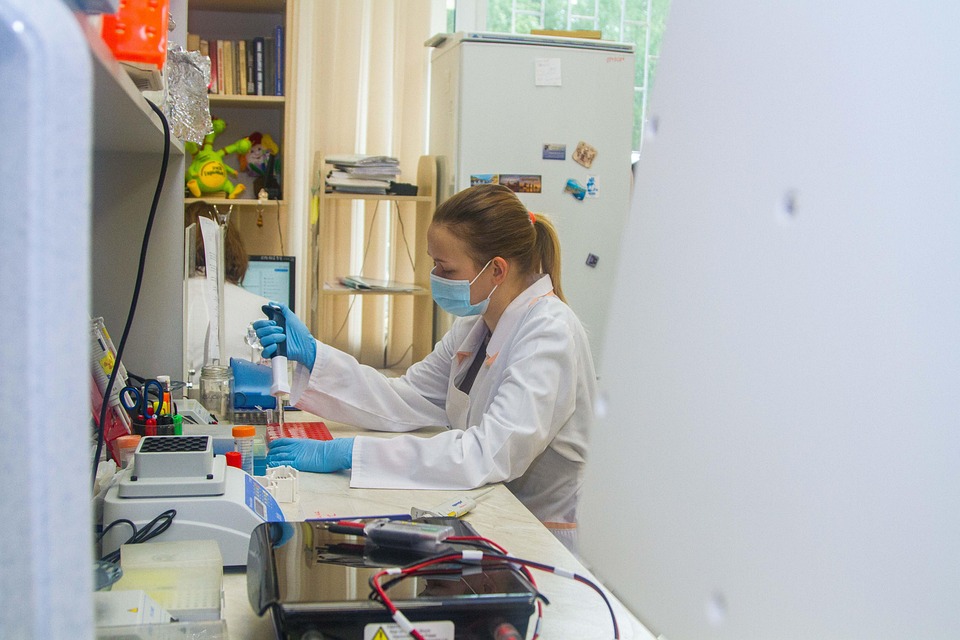Essential Skills and Responsibilities for Forensic Scientists: A Shortage Occupation with Promising Career Prospects in the UK
In the realm of criminal justice, forensic scientists hold an indispensable role. They are the unsung heroes who unravel the mysteries behind crimes, piecing together clues that often lay hidden from plain sight. As the UK grapples with a notable shortage of qualified forensic professionals, the demand for skilled individuals in this field has never been more significant. However, what does it truly take to excel as a forensic scientist? Let’s delve into the essential skills and responsibilities that define this fascinating occupation.
1. Analytical Thinking and Attention to Detail
At the heart of forensic science lies the ability to analyse complex data and evidence. Whether it’s DNA samples, toxicology reports, or digital footprints, forensic scientists must exhibit sharp analytical skills. They dissect information meticulously, ensuring that no detail is overlooked. A minor oversight could lead to a miscarriage of justice, which emphasises the weight of their responsibilities.
Moreover, attention to detail extends beyond mere observation. Forensic scientists must also document their findings with precision. This documentation, often presented in court, must withstand scrutiny from defence attorneys and judges alike. The ability to communicate complex scientific concepts in layman’s terms is a skill that cannot be underestimated.
2. Technical Proficiency in Laboratory Techniques
Forensic scientists operate at the intersection of science and law, requiring a robust understanding of various laboratory techniques. Mastery over methods such as chromatography, microscopy, and spectrometry is essential. As technology evolves, so too must their skills. Staying updated with the latest advancements in forensic technology not only enhances their capabilities but also ensures they remain competitive in the job market.
Furthermore, proficiency in software systems used for data analysis and case management is becoming increasingly crucial. The integration of technology in forensic science cannot be ignored; those who embrace it will likely find themselves at an advantage.
3. Problem-Solving and Critical Thinking
In the face of ambiguity, forensic scientists are often called upon to think critically and solve problems creatively. For instance, they may be tasked with reconstructing a timeline of events based on fragmented evidence. This requires not only scientific acumen but also an imaginative approach to piecing together narratives from disparate data points.
The ability to hypothesise different scenarios and test these against the evidence is vital. As noted by Dr. Angela Gallop, a prominent forensic scientist, “The best forensic scientists are not just technicians; they are detectives who use science to tell a story.” This storytelling aspect of forensic science adds an intriguing layer to the profession.
4. Ethical Considerations and Professional Integrity
With great power comes great responsibility. Forensic scientists often operate under ethical guidelines that govern their conduct. Maintaining objectivity, ensuring confidentiality, and upholding the integrity of the evidence are paramount. The repercussions of ethical lapses can be dire, affecting not only the outcomes of cases but also public trust in the justice system.
In an age where forensic evidence can make or break a case, the moral compass of these professionals is continually tested. It is essential that they navigate these ethical waters with care, as their decisions can have lasting impacts on lives and communities.
The Road Ahead: A Bright Future in Forensic Science
With a projected growth in the field, aspiring forensic scientists can look forward to promising career prospects in the UK. The ongoing shortage of qualified professionals signals a unique opportunity for those willing to invest in the necessary education and training. As the demand for forensic expertise rises, so too does the potential for career advancement and specialisation.
For anyone considering a career in this dynamic field, the journey promises to be both challenging and rewarding. The skills acquired not only prepare you for the rigours of forensic analysis but also equip you with a unique perspective on the intersection of science and justice.
At Visajob.co.uk, we understand the intricacies involved in securing employment in the UK, particularly for roles that require sponsorship. We are here to support you every step of the way as you embark on this exciting career path in forensic science. Your journey towards a fulfilling profession awaits, and we’re ready to help you navigate the complexities of the UK job market.




